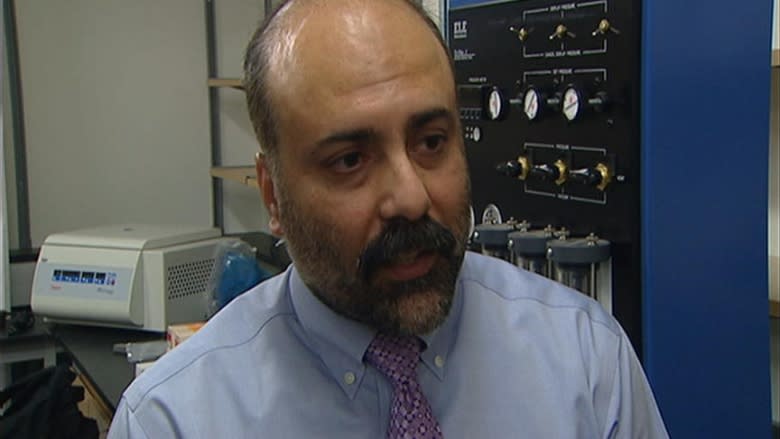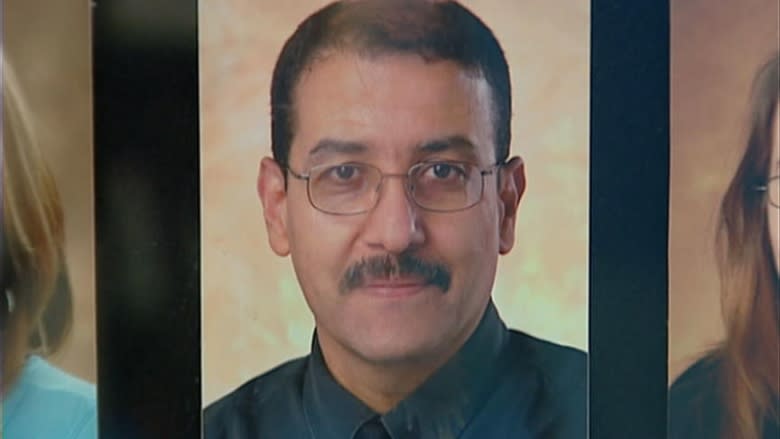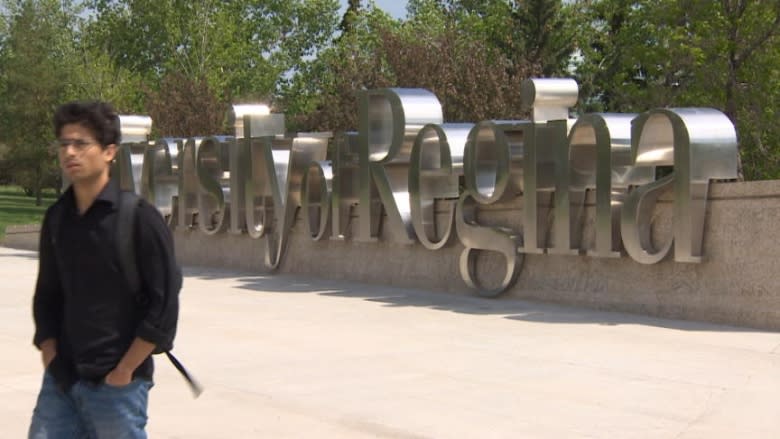Plagiarism allegation against U of R prof highlights growing problem
The most recent allegation of plagiarism in the engineering faculty at the University of Regina (U of R) is prompting experts to say there’s much more academic dishonesty on campuses across the country than universities are aware of or willing to admit.
"My observation is the institutions have much more interest in pursuing student ethical violations than faculty violations because the faculty violations reflect on their own institution," said Benson Honig of McMaster University’s school of business in Hamilton.
His comment is prompted by a CBC story about U of R student Arjun Paul, who claimed his engineering professor copied parts of his master's thesis and included them in a journal article without crediting Paul.
The journal, Environmental Geotechnics, investigated the allegation against Prof. Shahid Azam earlier this year and concluded "it was evident that [Azam’s published paper] had not fully credited Arjun Paul’s thesis," and as a result it "decided to withdraw the paper from Environmental Geotechnics."
Azam denied plagiarizing Paul’s master's thesis. Azam admits there are similarities between the publications and said there's a simple explanation.
He and Paul wrote a couple of papers together before the thesis was published in which Azam claims he did most of the writing. And he claims that’s the text that showed up in Paul's thesis.
Not faculty’s first complaint
This isn’t the first time a professor in the faculty of engineering at the U of R has been accused of plagiarizing his student’s work.
In 2008, former student Shahryar Ali Khan alleged his then professor, Ezeddin Shirif, and three others submitted a paper to the Journal of Canadian Petroleum Technology that was plagiarized from his master's thesis.
Following its investigation, the journal wrote a letter to Shirif saying "it has been shown that the work is not your own." It went on to tell Shirif it is "suspending any work received from you" and "informing other publications of this serious misconduct."
The Association of Professional Engineers and Geoscientists of Saskatchewan (APEGS) investigated and cleared Shirif of any wrongdoing.
The U of R investigated too, but would not share the results with Khan. "How do I know it was not a slap on the wrist?" Khan said.
Shirif continues to work as a professor at the institution to this day. The U of R still won’t disclose the results of its investigation, citing privacy law.
Regina university says 'scholarly misconduct' rare
In a recent email, a U of R spokesperson noted "scholarly misconduct is extremely rare" at the institution adding that aside from the current investigation into Azam there has been just one other since 2010.
Honig said his research indicates there's much more academic dishonesty occurring at universities and colleges than meets the eye.
In his own 2012 paper, "The Fox in the Hen House," Honig revealed that of the 279 articles he reviewed from his own academic discipline, 25 per cent "had some amount of plagiarism" and over 13 per cent "exhibited significant plagiarism."
"It was shocking to the entire field," Honig said.
He also noted there have been a growing number of articles retracted from academic journals over the past decade.
One study found that in about two thirds of those cases the articles were withdrawn for ethical breaches.
Growing pressure to publish
Honig said there are huge incentives for professors to get published in academic journals.
"If you don’t get published, your career could be destroyed if you can’t get articles into these top journals," Honig explained, noting there are a growing number of scholars attempting to publish in a finite number of journals.
"So with odds that small, the incentives just increase for people to cut corners in any way they can."
He said scholars who publish are often offered promotions, recognition among their peers and "some universities will give you some financial incentive for each publication," Honig said.
And, he explained, the international competition is fierce. "There are places in China where if you get one publication they’ll give you a three year salary bump. So with those kinds of incentives you can imagine what people will do."
He said ultimately, plagiarism hurts everyone because it erodes public confidence in the integrity of people doing academic research.
Honig added that since he published his revelations about the field of management research, "all of the top journals in my field now will send papers through plagiarism checkers before they advance them to publication."
'Double standard' in handling of plagiarism
Honig said all universities pay lip service to the importance of academic integrity.
However, he said he has found they’re much more focused on plagiarism by students than professors.
University of Western Michigan-based researcher Edward Eckel has published papers examining plagiarism and engineering masters theses.
He said his research shows that when professors plagiarize they receive different treatment than students.
"There’s a double standard in that the plagiaristic behaviour by people who are already faculty members tends to get swept under a rug," Eckel said. "And if it happens by a student the consequences are really grave."
"Students get punished very quickly for minor plagiarism. They can get kicked out of a program for doing this kind of thing," Eckel observed. "And professors get a slap on the wrist."
Honig agrees and said this needs to change.
"We need to have some clear consequences for ethical misbehaviour which we don’t have right now because there’s not incentive for anyone to do anything," Honig said.
"The incentive is to sweep it under the rug."
The U of R won’t discuss the allegations against Azam but it does say it has been investigating the matter since it learned about it in April.
U of R faculty of engineering Dean Esam Hussein said "we take these allegations very seriously and we are aware of them and we are conducting an investigation according to university procedures."




